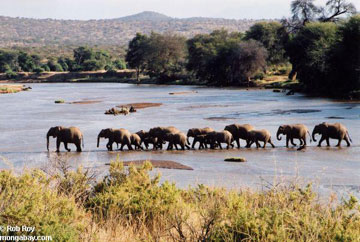Wildlife conservation plan moves forward in southern Sudan
Wildlife conservation plan moves forward in southern Sudan
Rhett A. Butler, mongabay.com
April 3, 2007
A leading conservation group announced that it has signed two agreements with the Government of Southern Sudan (GoSS) to launch a conservation strategy for the region’s wildlife. The New York-based Wildlife Conservation Society says that southern Sudan may have some of the richest wildlife in Africa.
“This agreement marks a milestone for conservation in Africa,” said Dr. Steven Sanderson, President and CEO of the Wildlife Conservation Society. “This kind of conservation opportunity comes once in a generation, if at all. We are delighted and honored to be the first conservation group to sign a formal agreement with the Government of South Sudan, and we join them in their optimism that the wildlife and wild lands of Southern Sudan will be a source of pride for its people, and a centerpiece for conservation in Africa. Our efforts with the Government of Southern Sudan show that we must act with hope and courage, even in areas burdened by conflict and neglect.”
 Photo by Rob Roy |
“The Government of Southern Sudan is strongly committed to the development of its partnership with Wildlife Conservation Society for wildlife conservation and natural resource management in Southern Sudan. Wildlife conservation has been an important part of our post-conflict strategy for several years,” said Dr. Luka Biong Deng, Minister for Presidential Affairs for the Government of Southern Sudan. “The Government of Southern Sudan is faced with many challenges in natural resource management and extractive industries. The plan for management of wildlife and the protected areas network being designed by the Ministry of the Environment, Wildlife Conservation, and Tourism and Wildlife Conservation Society will be a key component of the overall development of Southern Sudan.”
With several protected areas including Boma National Park, interest in southern Sudan for wildlife has been growing in recent years with some select private outfits operating in the region. WCS returned to Southern Sudan last year, 25 after leaving due to the outbreak of civil war.
WCS says now that peace has returned to the region, the greatest threats to wildlife and wild lands in Sudan are the burgeoning oil industry, the spread out automatic weapons that could lead to over-hunting, and uncontrolled development.